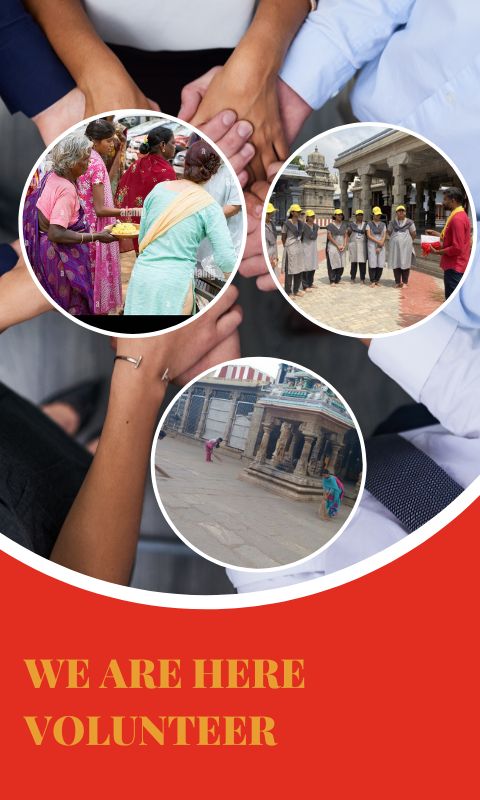Volunteering In SANGARMIKA
-
Volunteering is a distinct human characteristic. It is a socio-psychological
bridge connecting the self and the individual consciousness to the collective
consciousness of the community.
- On the one hand, it is an expression of free will of an
individual, while on the other; it is an expression of a certain set of values imbibed from
society values that enable an individual to locate her or himself in relation to others.
Preserving and strengthening Hinduism:
1. Reviving Understanding, Not Just Ritual
• Many people inherit practices but don’t know why they exist.
Teaching the philosophy behind dharma, yoga, Vedanta,
and the Upanishads (not just rituals) can give younger generations
a deeper sense of meaning.
2. Reform Where Needed
• Hinduism has always had reformers—from Adi Shankaracharya to Ramakrishna,
Swami Vivekananda, and others. Reform means addressing harmful practices
(like caste discrimination, blind superstition, or gender inequality) while holding
on to timeless wisdom.
3. Education & Accessibility
• Making Hindu philosophy accessible in simple language,
through books, podcasts, apps, and digital platforms,
can help people connect without feeling it’s only for priests
or scholars.
4. Unity Amid Diversity
• Hinduism has countless sects, traditions, and interpretations.
Internal divisions often weaken it. Emphasizing unity in diversity—honoring
different paths (bhakti, karma, jnana, yoga)—strengthens Hindu identity.
5. Global Relevance
• Yoga, meditation, Ayurveda, and concepts like ahimsa and dharma
are already influencing the world. Presenting Hindu wisdom as universal,
not just “Indian,” helps it remain relevant globally.
6. Living the Values
• More than defending Hinduism, the best way to preserve it is to live it:
practicing compassion, truth, self-discipline, service, and reverence for life.
When lived authentically, it attracts respect and continuity naturally.
7. Cultural Pride Without Chauvinism
• Passing on stories, festivals, art, and music helps preserve identity.
But saving Hinduism doesn’t mean turning it into a tool for hate—it means
celebrating it without diminishing others.
A key truth from within Hindu thought itself: Sanātana Dharma is eternal.
It cannot truly “die,” but it can be forgotten, distorted, or sidelined
if people don’t nurture it in meaningful, compassionate, and intelligent ways.

